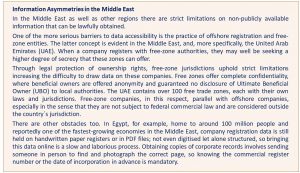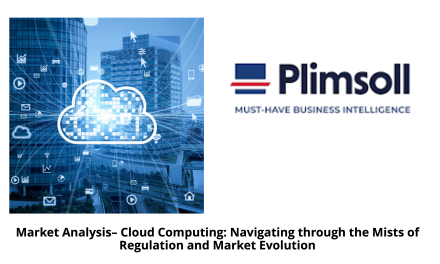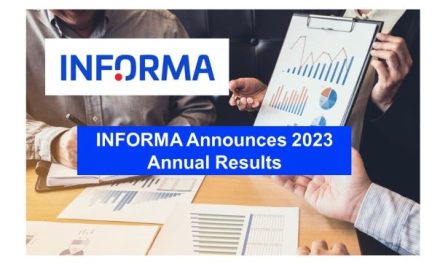Data Reliability – Is the data in my credit report up-to-date? Data asymmetries in the Middle East!
The reliability and freshness of the data contained within is of fundamental importance when investing in a business credit report, especially if you are buying in bulk through a package or subscription.
However, there are fundamental differences between the availability of commercial data in the developed world and that in developing countries, so it is wise to ensure you are aware of potential pitfalls when purchasing international reports.
Robust business credit reports rely on five overriding factors
Firstly, the origin of the basic registration and activity data, for example: whether it has been extracted from official sources or collated from other less reliable sources such as business directories, social media or the subject`s website. Not every country has commercial registration data available online and if it is online it may be in the local language and may not be free of charge to access.
Secondly, the date the data was last updated is crucial. Whether it has been updated within 24 months, six months or was a fresh investigation will make a huge difference. It is advisable for the data to be as updated as possible, especially when you`re dealing with extending large amounts of credit; but registry information is usually only updated annually or even less frequently in many countries.
Financial statements add a great depth of knowledge to a credit report but these are not available in several countries, simply because the filing of accounts is not a legal requirement. In any case, it should always be noted that accounts, even if available, are merely an assessment of the previous year or quarter.
The next important factor is perhaps surprisingly the original language of the data. Misinterpretation or incorrect translation of crucial information can lead to errors in correct identification of a company, or overlook important links to other companies, directors or shareholders because of mistranslation that may affect the overall risk analysis.
Correct matching of international standards such as activity codes (UKSIC/NACE) or International Financial Reporting Standards (IFRS) is essential for the data to be transferred automatically into various formats around the globe especially important if receiving credit reports via API or CRM (system to system applications).
Lastly, an informed and accurate credit opinion is a key factor which relies on all of the above.
Consequently, due to the variety of factors that a reliable automated instantly available credit report should contain, we must recognise the differences in the developed world with data availability from developing countries. See insert about the Middle East
Automated Data at the Click of a Button!
Automated data has revolutionised the business intelligence scene, providing fast, efficient and reliable data at the click of a button. However, have we taken for granted the efficiency of automated data in the developed world? Do our over-expectations of this automated data blind side us to the harsh realities in developing countries?
Automated data throughout the developed world allows companies to make practical assessments of companies in a timely manner. Company registration data may be instantly updated via data feeds or system applications (APIs), so if the registered address, company directors, shareholders, activities, legal status or financial status change this will automatically update in your credit report download, subscription or credit file.
There is also a culture of information sharing through trade references and filing of financial statements, as well as easy open access to mortgage charges and insolvencies.
Automated Data in Developing Countries
So how does automated data in the developing countries compare? The scoring system is based from 0-100 and takes into account all available data from official sources according to OpenCorporates which is tackling the excruciatingly difficult task of bringing company registration data for the whole world online.
Data fields that generate these scores include: freely searchable, freely available, director`s information, account information, shareholder information and licensing (open or not). We can take the first comparison, between the UK and the UAE, and assess that the UK through Companies House provides much more access to company data from official or free sources than the UAE. This is due to many reasons including the free-zone entities, but also a regional and historical culture of privacy.
We must remember also, that the UAE in its current form is not yet 50 years old and while technology is advanced, bureaucratic processes are still lagging behind the UK and financial filing is only required for publicly listed companies.
Commonly throughout the Middle East commercial registration data is not centralised, not structured and often only available on official sites in Arabic or the local language.
The Way Forward
At present, until more data is made available to credit reference agencies automatically and instantly worldwide, a freshly investigated credit report should always be the best route way to receive the most up-to-date and reliable information.
Yet when you conduct business with developing countries there are some extra measures that may need to be taken. It is important to use an experienced credit agency that understands the region and has the expertise to acquire and translate data from the correct sources.
If using a local agency, ensure they divulge the date of the data fields provided. When relying on automated credit risk scores, be confident that there is enough information provided in the report for an assessment to be accurate or ask your credit reference agency which quantitative and qualitative factors they use in their risk analysis to be sure they provide accurate scoring.
While there are still vast differences in the way data is collected, there are also innovative companies that are leaps ahead of the local governments making the best use of technology and working extremely hard to close the information gap to bring the world`s credit data online.
This article was also published by CICM in their Credit Management Magazine.
For more information on how we can help your business with automated data, give us a call today on +357 25 346630 or email info@cedar-rose.com
Source: Cedar Rose



























